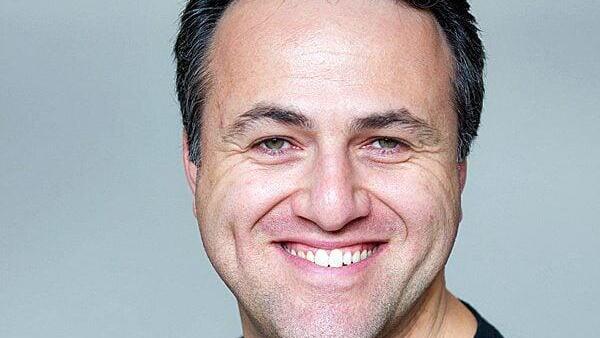
VC AI Survey
UpWest: ‘AI can accelerate the prep, but it can’t replace human judgment’
In CTech’s VC AI Survey, Gil Ben-Artzy says when it comes to choosing the right founders, no algorithm can match the trust and chemistry from face-to-face meetings.
“We invest at the earliest stages. The most important work we do is still human and in-person: sitting across from founders, seeing how they think on their feet, how they react to challenges, and whether there’s real chemistry and trust,” said Gil Ben-Artzy, Founding Partner at UpWest. “AI can accelerate the prep, but it can’t replace the nuance of those interactions.”
The VC firm joined CTech for its VC AI Survey, and outlined some of the ways the technology will integrate with human interactions. “Over time, I expect we’ll keep weaving AI deeper into our process, but always as a tool to enhance judgment, not substitute for it,” he added.
You can learn more in the interview below.
Fund ID
Name and Title: Gil Ben-Artzy - Founding Partner
Fund Name: UpWest
Founding Team: Shuly Galili, Gil Ben-Artzy
Founding Year: 2012
Investment Stage: Pre-Seed & Seed rounds
Investment Sectors: We are a generalist fund and invest as early as it gets in multiple verticals, including cybersecurity, fintech, healthcare, etc. We are focused on helping Israeli founders better access the US market, as we ourselves are based in the US
On a scale of 1 to 10, how has AI impacted your fund’s operations over the past year - specifically in terms of the day-to-day work of the fund's partners and team members?
I’d put it at about a 7. We’ve meaningfully integrated AI into parts of our workflow, from streamlining due diligence research, to quickly mapping competitive landscapes, to summarizing technical documentation so we can get to the heart of the matter faster. It’s also become a useful companion for portfolio support, including helping draft go-to-market experiments, analyzing customer feedback, and preparing for investor updates.
That said, we invest at the earliest stages. The most important work we do is still human and in-person: sitting across from founders, seeing how they think on their feet, how they react to challenges, and whether there’s real chemistry and trust. AI can accelerate the prep, but it can’t replace the nuance of those interactions. Over time, I expect we’ll keep weaving AI deeper into our process, but always as a tool to enhance judgment, not substitute for it.
Have you already had any significant exits from AI companies? If so, what were the key characteristics of those companies?
SentinelOne — which we backed as their first check — brought AI into endpoint security and became a standout success of the previous AI wave. The new GenAI and agentic AI era is still too early for major exits, but we believe the defining companies are being built now, and we’re backing founders with the vision and patience to create lasting businesses.
In our current fund, nearly every company we’ve backed is built around a strong vertical AI thesis, whether in security, healthcare, legal, infrastructure, and more. One example is Zenity, a security platform for enterprise AI environments, providing visibility, policy enforcement, and threat detection across copilots and low-code tools. The best of these companies move fast, adopt new technologies aggressively, and build defensibility through unique data, integrated workflows, and exceptional user experience — delivering step-change improvements, not incremental gains.
Is identifying promising AI startups different from evaluating companies in your more traditional investment domains? If so, how does that difference manifest?
In many ways, the way we evaluate AI startups is no different from any other company we back: it always starts with the team. We're looking for founders who are thoughtful, resourceful, and have real insight into the problem they’re solving.
That said, when it comes to AI, we do pay closer attention to defensibility. Models alone aren’t enough. We’re looking at how the company is building moats around proprietary data, embedding into critical workflows, designing for real usage, and delivering a product experience that’s hard to rip out. In a category where speed and competition are intense, creating a lasting advantage matters even more.
What specific financial performance indicators (KPIs) do you examine when assessing a potential AI company? Are there any AI-specific metrics you consider particularly important?
At the stage we invest, there usually aren’t any meaningful financial KPIs to measure. What we’re really evaluating is the team, the size of the opportunity, and how tightly those two are connected. We’re asking: do the founders have a deep understanding of the space? Are they uniquely positioned to build in this domain? Can they move fast and stay focused while the ground shifts beneath them?
If there’s anything we do pay close attention to in AI startups, it’s early signals of usage quality, not just vanity metrics. Are users returning? Are they using it to make real decisions? Are they relying on the AI for real decisions or outcomes? Even in the absence of revenue, that kind of engagement can be a leading indicator of value.
How do you approach the valuation of early-stage AI startups, which often lack significant revenues but possess strong technological potential?
We don’t think about AI valuations all that differently from other early-stage investments. At the end of the day, it still has to make sense for a seed fund, both in terms of risk and ownership. We’re not trying to price the technology itself; we’re backing the team and the opportunity, and setting a structure that gives the company a real shot at the next round.
Of course, AI is a hot category, and valuations can sometimes get ahead of traction. But we try to stay disciplined. The goal isn’t to win the deal at any price, but to find alignment early and build something enduring together.
What financial risks do you associate with investing in AI companies, beyond the usual technological risks?
For us, the bigger financial risk in early AI companies isn’t infrastructure or regulation — it’s when the technology gets ahead of the business model. We’ve seen founders build impressive capabilities that the market isn’t yet ready to adopt, which can burn through capital quickly. In high-stakes sectors, there’s also a trust curve to climb before customers will commit. And in fast-moving categories, today’s edge can become tomorrow’s commodity unless the company locks in adoption and defensibility early.
Do you focus on particular subdomains within AI?
We don’t box ourselves into a single subdomain. Our focus is on the problem being solved and whether AI is the right lever to solve it. That’s led us to back companies across a wide array of opportunities. Some use generative AI, some computer vision, some entirely different approaches. The common thread is a big, urgent problem, founders with deep domain insight, and AI applied in a way that creates a lasting competitive advantage.
How do you view AI’s impact on traditional industries? Are there specific AI technologies you believe will be especially transformative in certain sectors?
AI is transforming both the infrastructure layer and the user experience, but what’s really speeding things up is how visible it is to end users. People are seeing the value for themselves outside of work – often in simple, intuitive interfaces – and then demanding the same capabilities inside their companies. That kind of bottom-up pull is driving adoption faster than anything we’ve seen in years, and it’s one reason we’ve backed vertical AI companies in security, legal, healthcare, manufacturing, and government. We’re excited to keep looking across multiple traditional industries for the next wave of AI-driven transformation.
What specific AI trends in Israel do you see as having strong exit potential in the next five years? Are there niches where you believe Israeli startups particularly excel?
Cybersecurity is an obvious one — it’s a long-time Israeli strength, and AI is creating entirely new attack surfaces. Companies like Zenity are already showing what’s possible. I also think we’ll see more defense-related AI startups emerge here, given the talent and experience base.
Beyond that, I’m especially bullish on infrastructure and vertical AI. Israeli founders are great at building in complex, high-stakes environments, and I expect to see smart, defensible AI deployments across multiple industries where technical depth and domain expertise can translate into meaningful exits over the next 5-10 years..
Are there gaps or missing segments in the Israeli AI landscape that you’ve identified? What types of AI founders are you especially looking to back right now in Israel?
One gap we see is the shortage of AI founders who combine deep technical skill with a deep understanding of the verticals they’re targeting, especially in the US. Israel has world-class talent in building tech, but the biggest breakthroughs happen when you understand the customer’s world as well as the code. That depth of market understanding is what turns strong technology into a category-defining business.
We’re looking for founders who can bridge that gap, bringing the technology, the market insight, and a global mindset from day one. When those elements come together, the potential for impact and outsized outcomes is huge. That’s exactly where we want to lean in: backing founders who can turn AI into real, global businesses.
